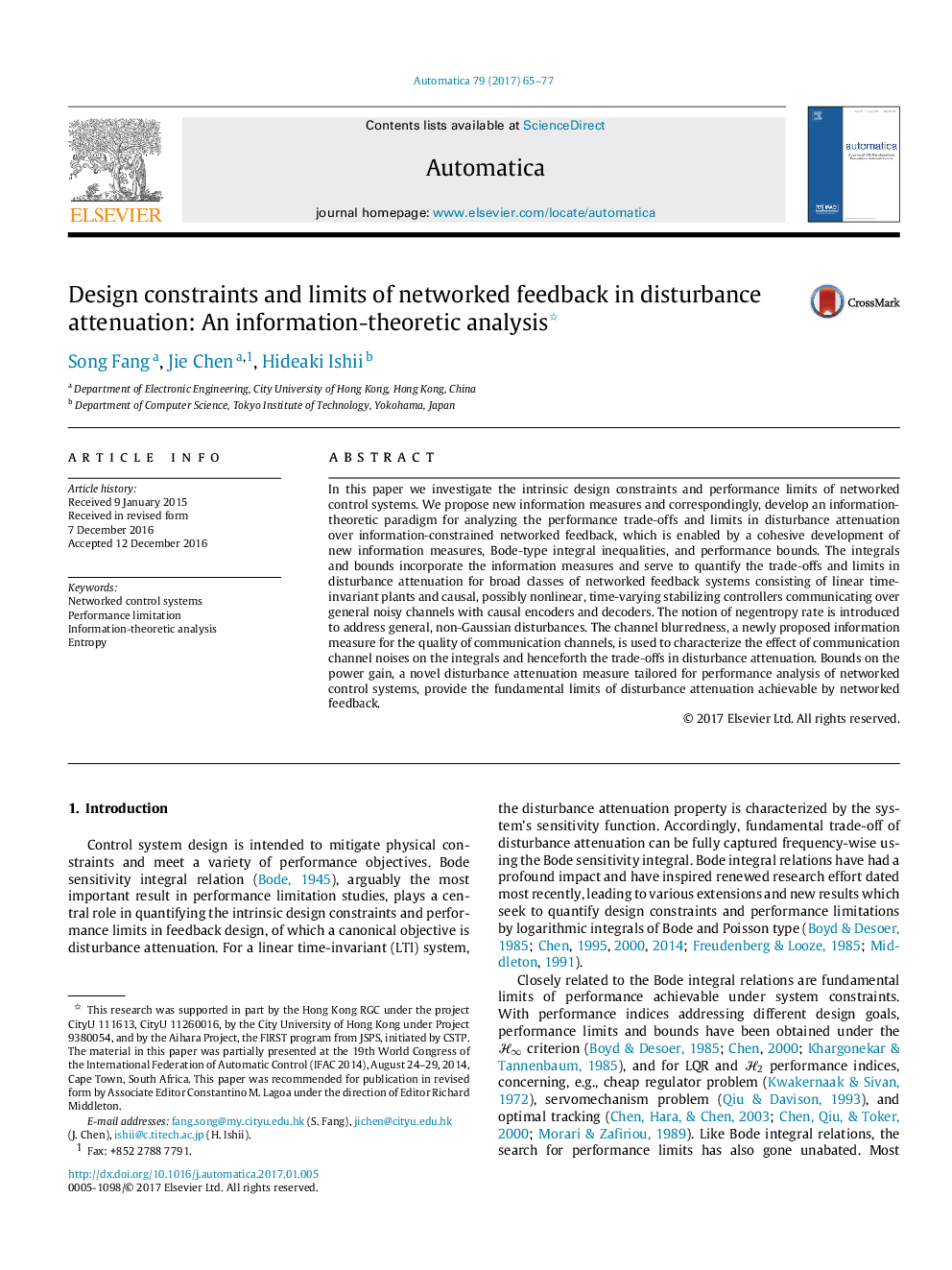| Article ID | Journal | Published Year | Pages | File Type |
|---|---|---|---|---|
| 5000012 | Automatica | 2017 | 13 Pages |
Abstract
In this paper we investigate the intrinsic design constraints and performance limits of networked control systems. We propose new information measures and correspondingly, develop an information-theoretic paradigm for analyzing the performance trade-offs and limits in disturbance attenuation over information-constrained networked feedback, which is enabled by a cohesive development of new information measures, Bode-type integral inequalities, and performance bounds. The integrals and bounds incorporate the information measures and serve to quantify the trade-offs and limits in disturbance attenuation for broad classes of networked feedback systems consisting of linear time-invariant plants and causal, possibly nonlinear, time-varying stabilizing controllers communicating over general noisy channels with causal encoders and decoders. The notion of negentropy rate is introduced to address general, non-Gaussian disturbances. The channel blurredness, a newly proposed information measure for the quality of communication channels, is used to characterize the effect of communication channel noises on the integrals and henceforth the trade-offs in disturbance attenuation. Bounds on the power gain, a novel disturbance attenuation measure tailored for performance analysis of networked control systems, provide the fundamental limits of disturbance attenuation achievable by networked feedback.
Related Topics
Physical Sciences and Engineering
Engineering
Control and Systems Engineering
Authors
Song Fang, Jie Chen, Hideaki Ishii,
